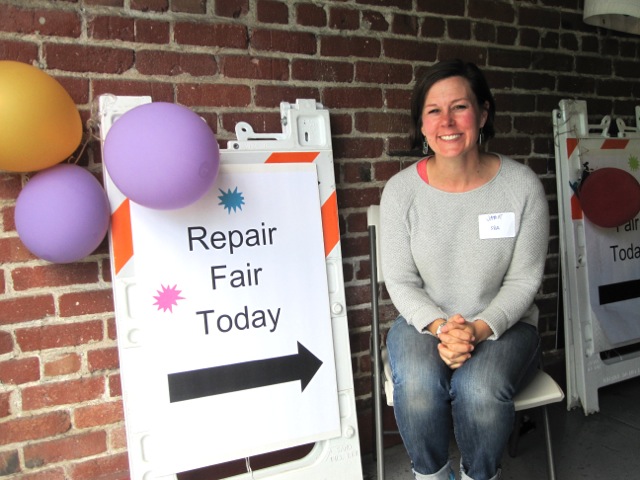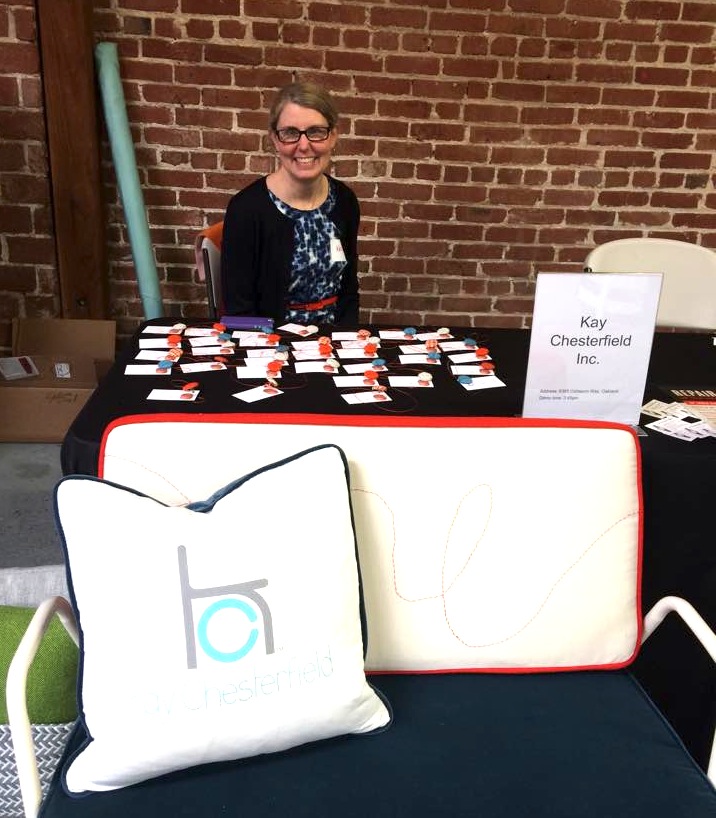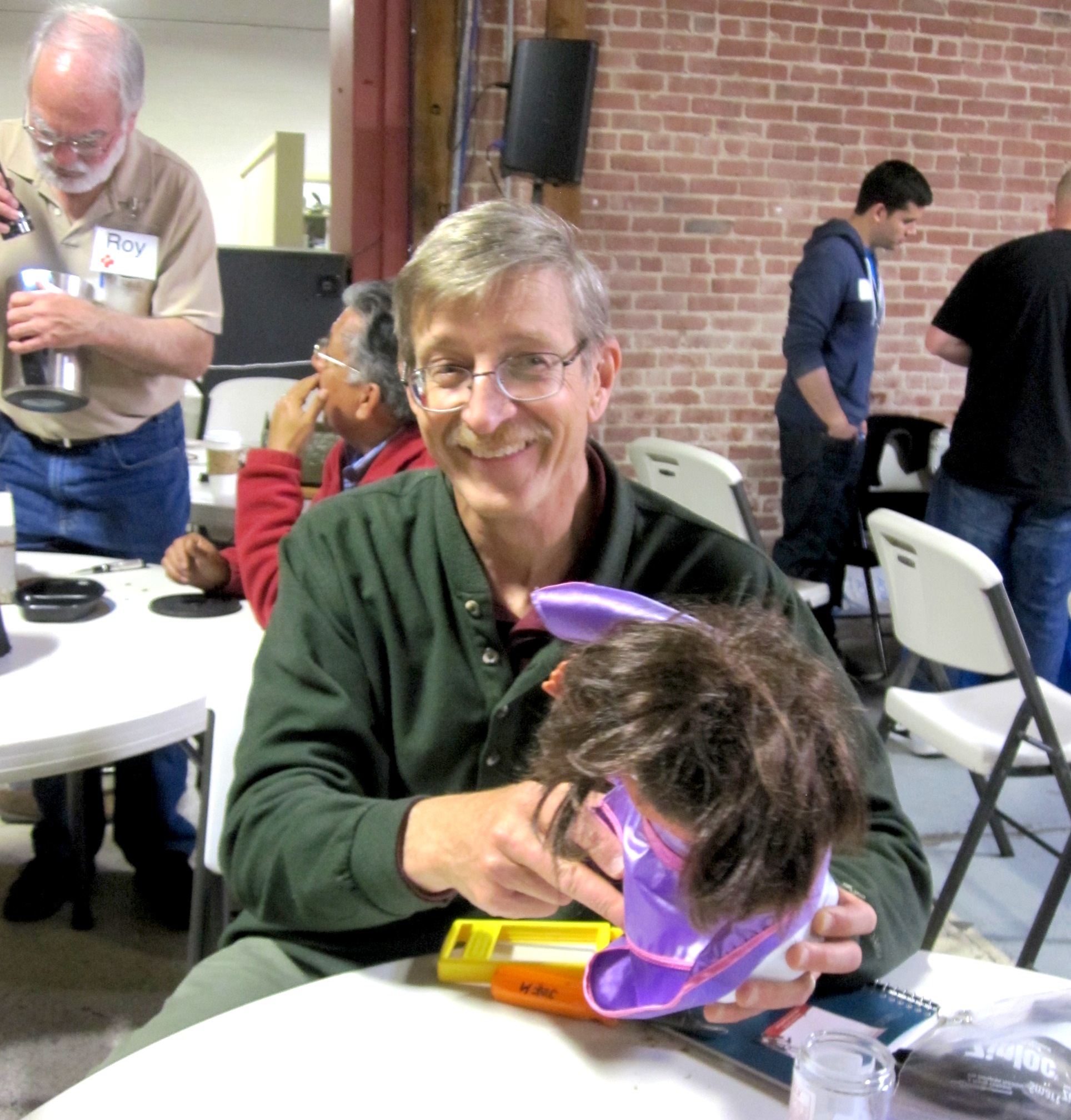Fixing A Broken System: Repair Fair Organizer Jamie Facciola
POSTED ON May 29th, 2015 BY Stefanie PruegelEvery so often we run into people doing important environmental work who deserve some recognition. This inspired us to launch a Gigantic blog series highlighting local citizens making a difference. Here, Gigantic’s Stefanie Pruegel speaks with Jamie Facciola, a Bay Area native with background in corporate sustainability consulting and verification of greenhouse gas emissions.

On May 17, Uptown Body & Fender in Oakland hosted the Repair Fair, an event single-handedly organized by volunteer Jamie Facciola, Community Engagement Planner with the Sustainable Business Alliance. For three hours, about a dozen Oakland businesses took turns demonstrating repairs on everything from shoes, amps and furniture to jewelry and vacuum cleaners. Meanwhile, on the far end of the spacious venue, a handful of volunteer “fixers” guided visitors in the disassembly and—in many cases—successful repair of broken stuff they had brought, including toasters, radios, hair dryers and even a doll.
Jamie had spent months pulling it all together. Her motivation? “After years of helping nudge big companies towards more ‘sustainable’ choices, I wanted to get involved in something tangible, something that has impact in my neighborhood.” Repair appeals to her because “it is an industry where growth doesn’t also mean growing resource depletion and waste, but actually means doing more good for the environment.”

The point of the event was to promote local repair businesses, an industry that seems to be in danger of going extinct. Not that stuff breaks less—quite the opposite—but even items covered under warranty are no longer repaired because “it is the least incentivized option; typically a company will just send you a new one.”
The decline of repair seems ironic in a culture where the Maker Movement is thriving and DIY is hip, at least in the Bay Area. But there’s a difference. The appeal of the hugely popular Maker Faire, for example, is all about empowerment and creative self-expression in a world of cookie-cutter products. Repurposing definitely has its place there, but good old repair? Jamie speculates that maybe it’s just not sexy enough.
One of her biggest worries is that pretty soon repair services will only be available at Fixit Clinics where no money changes hands. “Don’t get me wrong—these pop-up events where volunteers gather to fix things for free are hugely popular and address a real need,” she asserts. “But I do wonder about the impact on the local economy.” At the event, she made a point of checking first if a visitor’s broken item could be handled by one of the repair businesses on hand before sending the owner over to the “fixer” corner.

The event feedback from shops and attendees was overwhelmingly positive. Did they score new customers? Definitely, but more importantly, they met each other and networked, even referring visitors where their services weren’t quite the right match “Maybe they need to come together as a group, and market themselves as an industry,” muses Jamie. She is starting work on a business plan for a “Repair Salon”—a physical space shared by businesses offering one-stop shopping for repairs. “Oakland could be the perfect place for that.”
Follow Jamie’s next steps at repairrevolution.com or contact her by email.